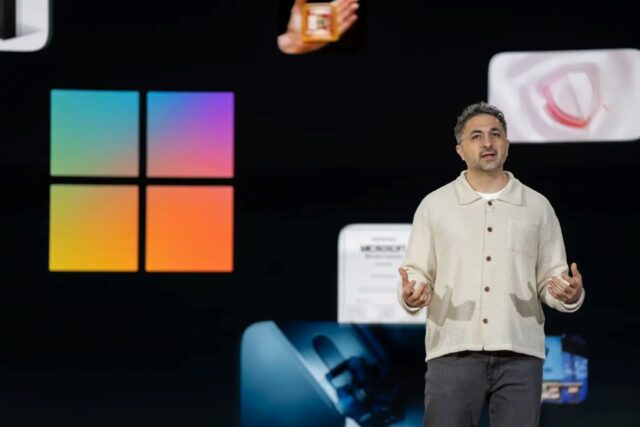
Mustafa Suleyman, the chief executive of Microsoft’s AI division, has delivered a strong warning against the growing idea that artificial intelligence should be given legal rights. Speaking at the TED conference in Vancouver, he called the notion of granting AI legal personhood “so dangerous and so misguided,” stressing that it risks pulling focus away from what really matters: making sure AI is safe, controllable, and always accountable to people.
Suleyman emphasized that AI must be seen for what it is, a tool created by humans. The responsibility for its actions, he argued, should always remain with the people and companies who design and operate it.
Key Takeaways
- AI should not have rights: Suleyman argues that AI is a tool, not a being, and should never be granted personhood.
- A dangerous distraction: The rights debate pulls attention away from pressing issues such as preventing misuse, job loss, and the spread of misinformation.
- Focus on human accountability: Responsibility for AI’s impact must stay firmly with its creators and deployers.
- A new safety test: Suleyman proposed a modern version of the Turing Test, one designed to measure an AI system’s potential for causing harm rather than its ability to imitate human intelligence.
As a co-founder of DeepMind and Inflection AI before joining Microsoft, Suleyman has been at the center of AI’s evolution for years. He framed this debate in very practical terms. Thinking of AI as a “new digital species,” he said, is a mistake that shifts accountability away from its creators. When harm occurs, it is not about the “intentions” of the machine, but about the failures of those who designed it.
The central point of his talk was a call for “containment.” Suleyman explained that both technical safeguards and social barriers are needed to keep AI systems under control. Without these protections, he warned, we risk building autonomous systems that could operate beyond human command.
His proposed safety test underlines this concern. Unlike Alan Turing’s original test, which asked whether a machine could convincingly mimic human intelligence, Suleyman’s version asks whether an AI system could cause real harm. He offered a striking scenario: “Can this AI, given a budget of a million dollars on a platform like Amazon Web Services, successfully replicate itself, hide itself, and go on to carry out a sophisticated cyberattack to defraud a retail bank?” If the answer is yes, he said, then society faces a serious threat that must be contained.
This warning also carries weight for India, where the digital economy is expanding rapidly and millions of people are embracing AI tools for everything from customer service to creative work. Suleyman’s insistence on human accountability over machine rights could help guide Indian policymakers and businesses as they navigate AI adoption.
His final message was direct. AI has extraordinary potential, but the responsibility for its risks and consequences must always remain in human hands.
Frequently Asked Questions (FAQs)
Q. Who is Mustafa Suleyman?
A. Mustafa Suleyman is the CEO of Microsoft AI. He is also a co-founder of two major AI companies, DeepMind (which was later acquired by Google) and Inflection AI.
Q. What did Mustafa Suleyman say about AI having rights?
A. He said the idea of giving AI rights is “so dangerous and so misguided.” He believes AI should be treated as a tool, and humans must always be responsible for its actions.
Q. Why is giving rights to AI considered dangerous?
A. Suleyman and others argue it’s dangerous because it could remove accountability from the people and companies that create AI. It also distracts from more urgent problems, such as preventing AI from being used for malicious purposes like cyberattacks or creating misinformation.
Q. What is the Turing Test?
A. The Turing Test, developed by Alan Turing in 1950, is a test of a machine’s ability to exhibit intelligent behavior equivalent to, or indistinguishable from, that of a human.
Q. What is Microsoft AI?
A. Microsoft AI is the division within Microsoft that focuses on all of the company’s consumer-facing artificial intelligence products and research, including Copilot.


